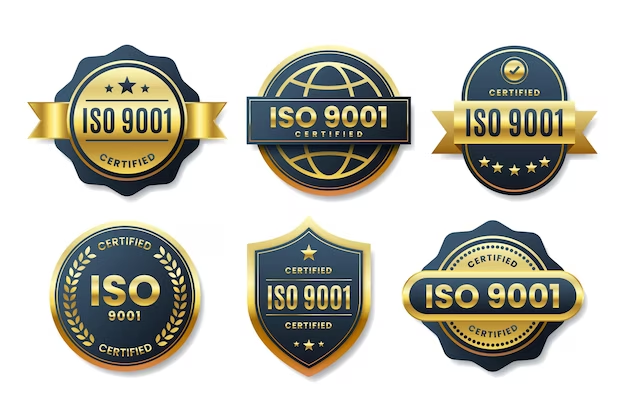
Quality control is essential for ensuring a proper and productive operation in the manufacturing industry. The commodities or products typically exhibit this deterioration when it occurs. As a result, this would result in a decline in the client base and the business’s standing in the intended market.
Additionally, the lack of expected quality in the products you are delivering interferes with those consumers’ needs. Customer satisfaction is fundamentally crucial to manufacturing on many levels as well.
A suitable system must be in place to recognise disparities. Implementing a unified system that adheres to quality & reliability, such as ISO 9001, is the only way to solve this issue.
The most recent version of the ISO family, ISO 9001:2015, strives to enhance supply chains, quality, and business operations by implementing the right systems. One of the most crucial elements of ISO Certification is closing the QMS’s current gaps.
What Does ISO Certification Mean, and How Does It Help Manufacturers?
The International Organisation for Standardisation, or ISO, is a body that creates and disseminates a range of standards with a particular emphasis on processes, goods, and services. In many supply chains and production businesses, these criteria are regarded as the pinnacle of quality and effectiveness.
You must use a professional or a third party to investigate or audit your business’s processes, services, and products to become ISO-certified. They consider several factors to establish the company’s level of conformity with ISO requirements. The certified authority issues the company the ISO certificate after it has passed the post-examination approval process.
The organisation gains countless advantages from ISO accreditation. When contract vetting is done, you can use this certificate to show that your company complies with ISO standards. As the “global standard for quality,” ISO can be promoted by a company to increase its visibility in the current market. Over time, this may enable them to draw in an increasing number of clients.
ISO Is All About Increasing Quality And Value
It’s a prevalent misperception that only a few company types can use ISO or that it supports more complex standards for all operations. They are intimidated by the idea that adhering to ISO standards might impair their capacity to handle day-to-day tasks. That’s not the case at all. After receiving the certification, it will be clear that you and your staff are very productive and prioritise quality over anything else.
Consumers should care about standards since they optimise business operations to increase productivity. If you experience the reverse, your operations don’t adhere to the standards, or you’re not using the suggested management style.
For instance, documentation is a crucial component of ISO registration. Although you must meticulously document every step of the process, this does not mean you must create a tonne of files and paperwork in connection with the endeavour. It’s more important to focus on how you handle this, as quality is preferred over quantity.
Conclusion
Those keen to raise the quality standard of their services may find it costly to ignore the ISO certification. You would be able to provide some resistance to the competition and improve your chances of enduring longer in the specific market by gaining ISO certifications. Therefore, avoiding further delays in the organisation’s adoption of ISO standards would be ideal.
Featured Image Source : https://img.freepik.com/free-vector/iso-certification-stamp-theme_23-2148675320.jpg?size=626&ext=jpg&ga=GA1.1.1173742830.1671113603&semt=ais



